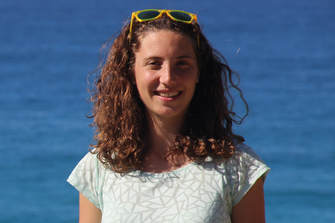Emilie David

Position: Master Student
Education:
• 2016-2019 Master of Environmental and Agricultural Science in
School of Engineering, AGROSUP Dijon, France
• 2014-2016 Two years of preparation for selective entrance exams to School of Engineering, Lycée Thiers Marseille, France
Education:
• 2016-2019 Master of Environmental and Agricultural Science in
School of Engineering, AGROSUP Dijon, France
• 2014-2016 Two years of preparation for selective entrance exams to School of Engineering, Lycée Thiers Marseille, France
Research Interest: climate change, coral bleaching, demersal zooplankton
Master Project: “Effect of coral bleaching events (2016 and 2017) on the demersal zooplankton community biomass”
The project is part of a long-term study at Lizard Island, Great Barrier Reef, which began in 2000, examining how the demersal zooplankton community changes over time. I focused specifically on the variation around the two recent coral bleaching events (2016, 2017). I tested how the biomass of zooplankton varied among times during this period, using samples taken at about 3-month intervals. I am also interested in whether the variation is correlated to just sea temperature or indirectly by the coral bleaching events. This research is significant because coral bleaching leads to reduced coral cover and changes in overall reef structure, which is the shelter in which many demersal zooplankton live. This change in habitat may have an impact on the abundance and diversity of demersal zooplankton community.
Supervisors: Dr Alexandra Grutter and Dr Derek Sun
The project is part of a long-term study at Lizard Island, Great Barrier Reef, which began in 2000, examining how the demersal zooplankton community changes over time. I focused specifically on the variation around the two recent coral bleaching events (2016, 2017). I tested how the biomass of zooplankton varied among times during this period, using samples taken at about 3-month intervals. I am also interested in whether the variation is correlated to just sea temperature or indirectly by the coral bleaching events. This research is significant because coral bleaching leads to reduced coral cover and changes in overall reef structure, which is the shelter in which many demersal zooplankton live. This change in habitat may have an impact on the abundance and diversity of demersal zooplankton community.
Supervisors: Dr Alexandra Grutter and Dr Derek Sun